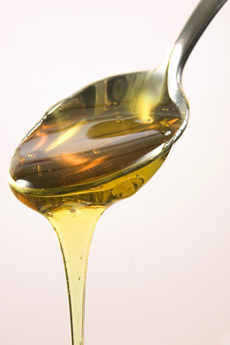Here is what Andrew Weil, M.D had to say.....
"I've stopped using agave myself and no longer recommend it as a healthy sweetener. The reason agave ranks relatively low on the glycemic index is because it has a high content of fructose. Fructose does not readily raise blood sugar (glucose) levels because the body doesn't metabolize it well. New research suggests that excessive fructose consumption deranges liver function and promotes obesity. The less fructose you consume, the better.
As it turns out, agave has a higher fructose content than any other common sweetener, more even than high fructose corn syrup (HFCS). Because of its reputation as a "natural" sweetener, it is now widely used in products claiming to be good for health – from teas to nutrition bars and energy drinks.
I don't think there's any doubt that Americans consume much too much fructose, an average of 55 grams per day (compared to about 15 grams 100 years ago, mostly from fruits and vegetables). The biggest problem is cheap HFCS, ubiquitous in processed food.
Fructose is a major culprit in the rising incidence of type 2 diabetes and nonalcoholic fatty liver disease. It may also increase risks of heart disease and cancer."


Agave nectar is derived from a starchy root, and has been used in Central America for a long, long time, but not always for medicinal purposes. Indigenous people both fermented it to create an alcoholic beverage and also boiled it, which they used as a sweetener. But that sweetener, which was minimally refined, bears no resemblance to the agave nectar you see on the shelves in most of your health food stores. today
About eight years ago... I gave a presentation to a group of retired Stanford professors and MD's. I recall a little retired pharmacist in her 80's discussing Stevia with me.. and what my thoughts were because her daughter in Hawaii thinks it will be the next big thing. I remember telling her that the FDA has not approved it's use yet..and I was not sure if it was safe? Well.. hold me down.. because now look where we are: The FDA has declared certain highly refined stevia preparations as "generally recognized as safe" (GRAS), which means that they can be used as sugar substitutes. These highly refined stevia extracts may cause mild side effects, such as nausea or a feeling of fullness. So for now I am basically going to just do as Dr. Ludwig of UCSF says... and keep my sugar to a minimum, although I have been using stevia in my coffee in the morning.. I only need half a packet to give the sweetness that I need.. and I have not grown a third arm yet... so I guess we will continue to wait to see where research leads us on sweeteners. For now I will leave the Agave Nectar on the shelf and use only as needed.
 |
| We can still be friends.. but just only on those special occasions. |

No comments:
Post a Comment